#feminist reading
Text
"Tyrants and sensualists are in the right when they endeavor to keep women in the dark, because the former only want slaves, and the latter a play-thing. The sensualist, indeed, had been the most dangerous of tyrants, and women have been duped by their lovers, as princes by their ministers, whilst dreaming that they have reigned over them."
-p.35 of 'A Vindication of the Rights of Woman' (Wollstonecraft, Mary)
114 notes
·
View notes
Text
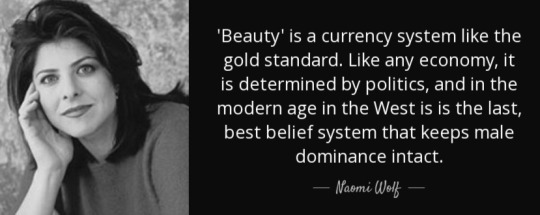
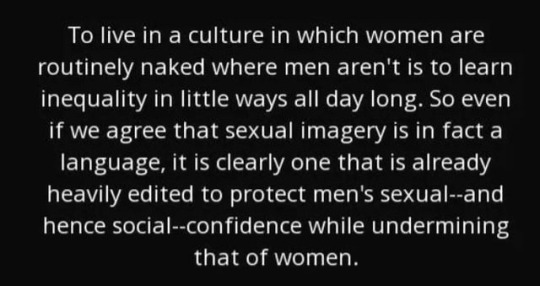
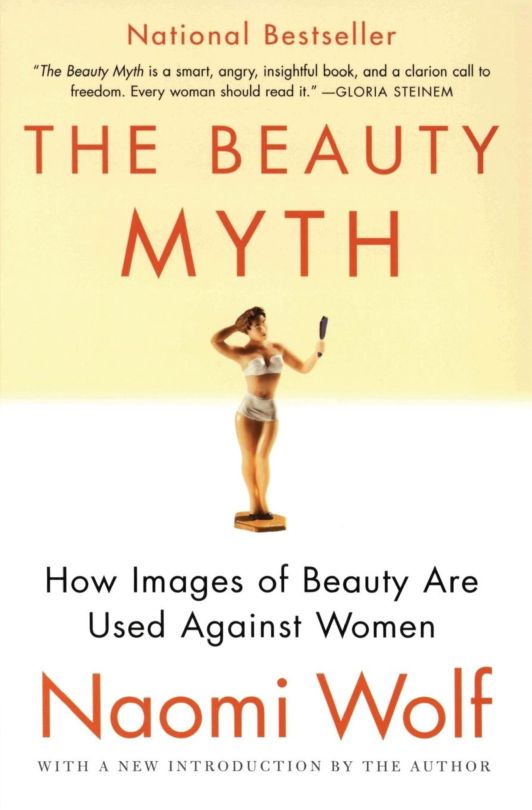
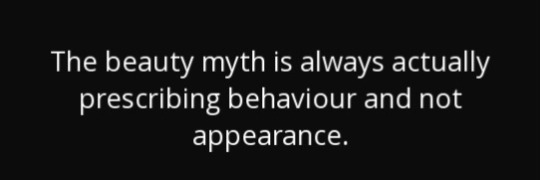
****************************************
#naomi wolf#the beauty myth#beauty culture#beauty standards#feminist books#feminist literature#feminist resources#feminist references#books#download#pdf & epub#feminist library#feminist reading#feminism#systemic misogyny#systemic oppression#female reality
32 notes
·
View notes
Text
Happy Halloween! In honor of the holiday, I'm happy to share my new long-form essay — "The Never-Ending Tedium of Survival: The Final Girls Who Struggle to Stay Alive Again and Again and Again" — up today at Interstellar Flight!
From the opening paragraphs: Horror movie franchises are often recognized by their iconic villains — Michael Myers, Freddy Krueger, Jason Voorhees, Ghostface, Pinhead, and many other often-masked and often-men baddies who are easily recognizable as a Halloween costume. However, they are not always the core of the series; more often, the heart and soul of a horror franchise is its survivor — the Final Girl (or Guy), who finds herself hunted all over again in the next film, who must learn to survive and survive again as she continuously stares down the ever-looming presence of the monster in the dark.
Bearing the wounds and scars granted by their roles as would-be-victims turned fighters, these Final Girls find themselves perpetually trapped in a limbo of trauma, dragging themselves through the mud and blood in the hopes of coming through the other side alive. This article will present an overview of a number of survivors, who have each appeared in at least three films within their franchise — and who each have their own journeys of coming to terms with their dark worlds.
Read the essay here: https://magazine.interstellarflightpress.com/the-never-ending-tedium-of-survival-4c5ab54a0635
#halloween#happy halloweeeeeeen#final girl#horror#movies#essays#long form#horror essay#feminist reading#horror movies#final girls
37 notes
·
View notes
Text
Science needs to be accessible. The fact that knowledge is hidden behind journal paywalls is so predatory. It means only the people who can afford to pay the publisher for information will be able to learn. The inability of vulnerable groups - or even just the general population - to acquire certain knowledge creates power disparities.
So anyways, TL;DR, here's the means to access nearly any scientific article normally behind a paywall for free:
Have fun on your nerdy side-quest reading niche academic articles on whatever the hell it is you're into.
#science#ref#references#resources#scientific resources#feminism#feminist reading#feminist resources#etm.
97 notes
·
View notes
Text
Macbeth
My teacher is trying to argue that the character of Lady Macbeth is supposed to be a warning story about a woman who defies her gender role and dies for it. This kind of bothers me.
Looking it up, it seems that many sites and essay seem to have a similar opinion. Personally though, I think the play is a little more feminist/attacking gender roles.
You could argue that the problem in the play was the strict gender roles that characters were placed in. Lady Macbeth felt stifled in her role as a woman, and wasn't able to perform the most important duty of a woman at that time- having a baby. Her restrictions on what she could be, especially since she couldn't perform her female role either, led to her resentment of femininity and weakness. In her husband, she saw all the potential to do and be the things she couldn't become, and resented him for squandering his privilege. She made to live through him by orchestrating his ascension to the throne and assuming that this would allow her more power. It didn't though.
Through her berating of her husband and him being encouraged to go forward in his ambition, greed, and violence, (to be a man, as his wife put it- a hard standard that most men feel compelled to try to prove themselves as) he lost himself and all the good qualities in him. What she saw as femininity and weakness was actually his heart and loyalty- the things that made him beloved and a good soldier and friend. The thing that made King Duncan a good King. While trying to use her husband to elevate herself, she failed to recognize her effect on him, and the kind husband she had married turned on her. He was crowned, and she still wasn't happy or felt like she was more powerful. She started to wonder if all the actions she had taken were worth it. Nothing in her life had improved, and by using masculinity against her husband, she had actually made both of their lives worse. Realizing all of this, she suddenly felt the full weight of her emotions and guilt which had previously been buried under her anger and ambition. She repressed her emotions for so long that they caused her to hallucinate, and in a fit of madness, she killed herself.
But things with Macbeth weren't good either. He had given up the parts of himself that allowed him to be happy and connect with others, and the toxic masculinity he was engaging with made him constantly paranoid, anticipating fights and seeing enemies everywhere. This was partly because his kindness was sacrificed for his goals, but it was still an innate part of himself, and just re-manifested as guilt. He knew he wasn't supposed to be like this, and he didn't want to be, but he'd gone too far to return, and he knew that the only end for him was death. Even villains were expected to stay strong in their beliefs and not admit fault or apologize. He would be seen as weak, and he would be killed regardless of what he did. So the rest of the play followed with Macbeth playing the waiting game on his death- not allowing himself to just give up, but knowing and dreading the end. His death was also a kind of suicide, but more on the lines of Dally from The Outsiders. He couldn't be seen as weak by killing himself, but he put himself/continued on in a situation that he knew would end in his death.
I don't know that Shakespeare was thinking this hard about it, but it seems to me, the real enemy was the expectations that characters faced on account of their gender. Essentially, the enemy was the patriarchy. At the very least, I think that Shakespeare was a feminist minded guy (as much as anyone could be in his time) as he usually made a point of having strong female characters or giving them death. I believe he had a lot of respect for women, and thus did not sentence LMB to die for being a not womanly woman, but simply to show that not even the villains were safe from the harm they inflicted. And also because people like to see the villain pay their dues. But don't go lumping Billy Shakes with the guy who modeled the villain after his wife who he had issues with
#macbeth#lady macbeth#In defense of a bad main character#feminist reading#great gatsby#william shakespeare#I spent my whole lunch break on this 😅#should just make a series for school related rants like this#f scott fitzgerald#Teacher grievances
19 notes
·
View notes
Text
Never trust a male author whose female characters are perpetually angry. There’s a reason he thinks women are angry all the time. (Hint: it’s him.)
14 notes
·
View notes
Text
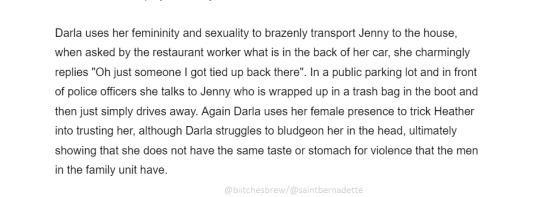
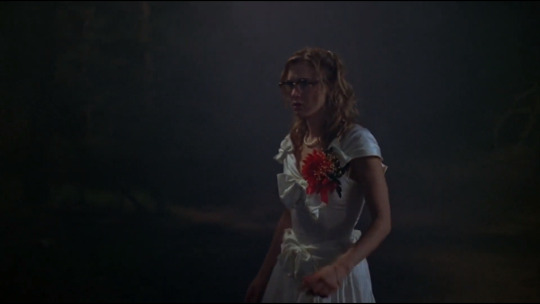

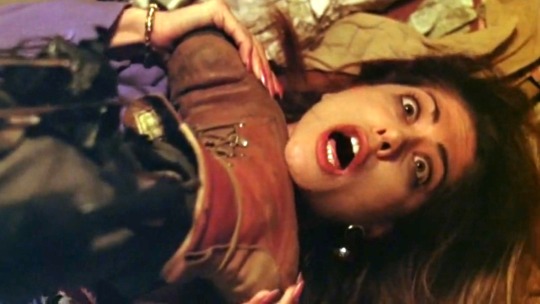
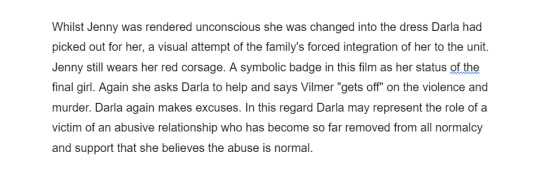
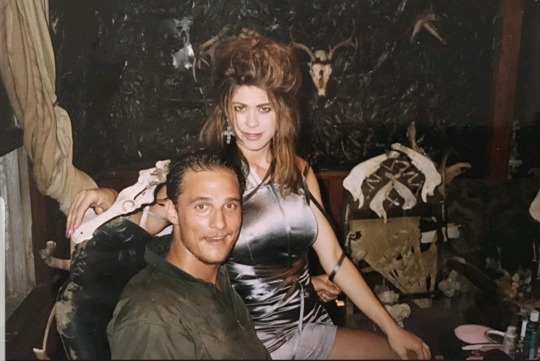


my thoughts on TCM: The Next Generation part3 ^_^
#my work#feminist writing#feminist reading#Texas Chainsaw Massacre#texas chainsaw massacre the next generation#tcm#tcm the next generation#final girl#women in horror#final girl syndrome#slashers#leatherface#90s horror#web weaving
20 notes
·
View notes
Text

I went to the local used book store today with a friend and was lucky to find a few feminist books. I've seen quotes of Naomi Wolf's The Beauty Myth and Promiscuities on tumblr before and I am looking forward to reading it. Please feel free to let me know your insights if you have read these. I'm particularly excited for the center book as I am Native American.
Obviously, it is important to be critical when reading any literature regarding Feminist theory and form your own opinions and beliefs. Only through education and learning our history of opression through the voices of the feminists before us will be also be able to make change in our time that can benefit the health and safety of all women now and in the future.
#feminist reading#feminist literature#books#reading#personal collection#Naomi Wolf#Promiscuities#Mary Daly#Pure Lust: Elemental Feminist Philosophy#Kathleen M. Donovan#Coming to Voice: Feminist readings of Native American Literature
8 notes
·
View notes
Text
"The Master's Tools Will Never Dismantle the Master's House" - Audre Lorde
These are the quotes I found most powerful/most important that really stood out to me while I was reading.
Poetry is not a Luxury
"The quality of light by which we scrutinise our lives has a direct bearing upon the product which we live"
"For each of us as women, there is a dark place within where hidden and growing our true spirit rises."
"The woman's place of power within each of us is neither white nor surface; it is dark, it is ancient, and it is deep."
"I speak here of poetry as the revelation or distillation of experience, not the sterile word play that, too often, the white fathers distorted the word poetry to mean - in order to cover a desperate wish for imagination without insight."
"We can train ourselves to respect our feelings and to transpose them into a language so they can be shared."
"We can sometimes work long and hard to establish one beachhead of real resistance to the deaths we are expected to live, only to have that beachhead assaulted or threatened by canards we have been socialised to fear, or warned to seek for safety. Women see ourselves diminished or softened by the falsely benign accusations of childishness, of non-universality, of changeability, of sensuality."
"The white fathers told us: I think, therefore I am. The Black mother within each of us - the poet - whispers in our dreams: I feel, therefore I can be free."
Uses of the Erotic
"In order to perpetuate itself, every oppression must corrupt or distort those various sources of power within the culture of the oppressed that can provide energy for change."
"We have been taught to suspect this resource, vilified, abused, and devalued within western society. On one hand the superficiality erotic has been encouraged as a sign of female inferiority; on the other hand, women have been made to suffer and feel both contemptible and suspect by virtue of its existence."
"The erotic has often been misnamed by men and used against women. It has been made into the confused, the trivial, the psychotic, the plasticised sensation.For this reason, we have often turned away from the exploration and consideration of the erotic as a source of power and information, confusing it with its opposite, the pornograohic."
"For the erotic is not a question of what we do; it is a question of how accurately and fully we can feel in the doing."
"I am speaking here of the necessity for reassessing the quality of all aspects of our lives and of our work, and how we move through them... When I speak of the erotic, then, I speak of it as an assertion of the lifeforce of women; of that creative energy empowered, the knowledge and use of which we are now reclaiming in our language, our history, our dancing, our loving, our work, our lives."
"Another important way in which the erotic connection functions is the open and fearless underlining of my capacity for joy."
"For once we begin to feel deeply all the aspects of our lives, we begin to demand from ourselves and from our life-pursuits that they feel in accordance with that joy which we know ourselves to be capable of. Our erotic knowledge empowers us, becoming a lense through which we scrutinise all aspects of our existence, forcing us to evaluate those aspects honestly in terms of their relative meaning withing our lives. And this is a grave responsibility, projected from within each of us, not to settle for the convenient, the shoddy, the conventionally expected, nor the merely safe."
"The fear that we cannot grow beyond whatever distortions we may find within ourselves keeps us docile and loyal and obedient, externally defined, and leads us to accept many faucets of our oppression as women."
"When we look the other way from our experience, erotic or otherwise, we use rather than share the feelings of those who participate in the experience with us. And use without consent of the used is abuse "
"...we use each other as objects of satisfaction rather than share our joy in the satisfying, rather than make connections with our similarities and differences."
The Master's Tools Will Never Dismantle the Master's House
"It is a particular academic arrogance to assume any discussion of feminist theory without examining our many differences, and without a significant input from poor women, Black and Third World women, and lesbians."
"What does it mean when the tools of a racists patriarchy are used to examine the fruits of that same patriarchy? It means that only the most narrow perimeters of change are possible and allowable."
"Advocating the mere tolerance of difference between women is the grossest reformism. It is a total denial of the creative function of difference in our lives."
"Difference is that raw and powerful connection from which our personal power is formed."
"As women, we have been taught either to ignore our differences, or to view them as causes for separation and suspicion rather than as forces for change. Without community there is no liberation, only the most vulnerable and temporary armistice between an individual and her oppression. But community must not mean the shedding of our differences, not the pathetic pretense that these differences do not exist."
"For the master's tools will not dismantle the master's house. They may allow us to temporarily beat him at his own game, but they will never enable us to bring about genuine change. And this fact is only threatening to those women who still define the master's house as their only source of support."
"Women of today are still being called upon to stretch across the gap of male ignorance and to educate men as to our existence and our needs. This is an old and primary tool of all oppressors to keep the oppressed occupied with the master's concerns."
Uses of Anger: Women Responding to Racism
"Guilt and defensiveness are bricks in a wall against which we all flounder; they serve none of our futures."
"If women in the academy truly want a dialogue about racism, it will require recognising the needs and living contexts of other women."
"Every women has a well-stocked arsenal of anger against those oppressions, personal and institutional, which bought that anger into being. Focused with precision it can become a powerful source of energy serving progress and change."
"But anger expressed and translated into action in the service of our vision and our future is a liberating and strengthening act of clarification, for it is in the painful part of this translation that we identify who are our allies with whom we have grave differences, and who are our genuine enemies."
"Mainstream communication does not want women, particularly white women, responding to racism. It wants racism to be accepted as an immutable given in the fabric of your existence, like evening time or the common cold."
"We cannot allow our fear of anger to deflect us nor seduce us into settling for anything less than the hard work of excavating honesty; we must be quite serious about the of this topic and the angers entwined within it because, rest assured, our opponents are quite serious about their hatred of us and of what we are trying to do here."
"And while we scrutinise the often painful face of each other's anger, please remember that it is not our anger which makes me caution you to lock your doors at night and not to wander the streets of Hartford alone."
"Hatred is the fury of those who do not share our goals, and its object is death and destruction. Anger is grief of distortions between peers, and its object is change."
"Anger is an appropriate reaction to racist attitudes, as is fury when the actions arising from those attitudes do not change. To those women here who fear the anger of women of colour more than their unscrutinised racist attitudes, I ask: Is the anger of women of colour more threatening than the woman hatred that tinges all aspects of our lives?"
"There is work on expressing anger, but very little on anger directed against each other. No tools were developed to deal with other women's anger except to avoid it, deflect it, or flee from it under a blanket of guilt."
"Guilt is only another way of avoiding informed action, of buying time out of the pressing need to make clear choices, out of the approaching storm that can feed the earth as well as bend the trees."
"For women raised to fear, too often anger threatens annihilation."
"But the strength of women lies in us recognising differences between us as creative, and to stand up to those distortions which we inherited without blame, but which are now ours to alter. The angers of women can transform difference through insight into power."
"Oppressed peoples are always being asked to stretch a little more, to bridge the gap between blindness and humanity. Black women are expected to use our anger only in service of other people's salvation and learning. But that time is over."
"If I fail to recognise them [other oppressed groups] as other faces of myself, then I am contributing not only to each of their own oppressions but also to my own, and the anger which stands between us then must be used for mutual empowerment, not for evasion by guilt or for further seperation. I am not free while any woman is unfree, even when her shackles are very different from my own."
Learning from the 1960s
"I have been guilty of what many of us are still guilty of - letting the media, and I don't only mean the white media - define the beaters of those messages most important to our lives."
"When we disagree with one another about the solution to a particular problem, we are often far more vicious to each other than to the originators if our common problem."
"Our persistence in examining the tensions within diversity encourages growth towards our common goal."
"Even though we fought common enemies, at times the lure of individual solutions made us careless of each other. Sometimes we could not bear the face of each other's differences because of what we feared these differences might say about ourselves."
"We do not have to romanticise our past in order to be aware of how it seeds our present. We do not have to suffer the waste of an amnesia that robs us of the lessons of the past rather than permits us to read them with pride as well as deep understanding."
"If we are to keep the enormity of the forces aligned against us from establishing a false hierarchy of oppression, we must school ourselves to recognise that any attack against Blacks, any attack against women, is an attack on all of us who recognise our interests are not being served by the systems we support."
"Can any of us here still afford to believe that efforts to reclaim the future can be private or individual? Can anyone here still afford to believe that the pursuit of liberation can be the sole and particular province of any one particular race, or sex, or age, or religion, or sexuality, or class?"
"Revolution is not a one time event."
"You do not have to be me in order for us to fight alongside each other. I do not have to be you to recognise our wars are the same... We must allow each other our differences at the same time as we recognise our sameness."
#feminist reading#the master's tools will never dismantle the master's house#Audre Lorde#audre lorde#radfem#radical feminism#radical feminists please interact#radfems please interact#radfems do interact#ref#feminism#quotes#intersectionality#intersectional feminism#radfems please touch#radfems do touch#radfem safe
34 notes
·
View notes
Text
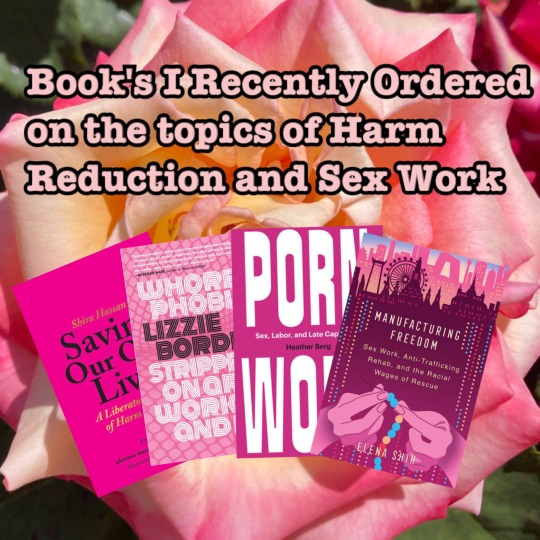

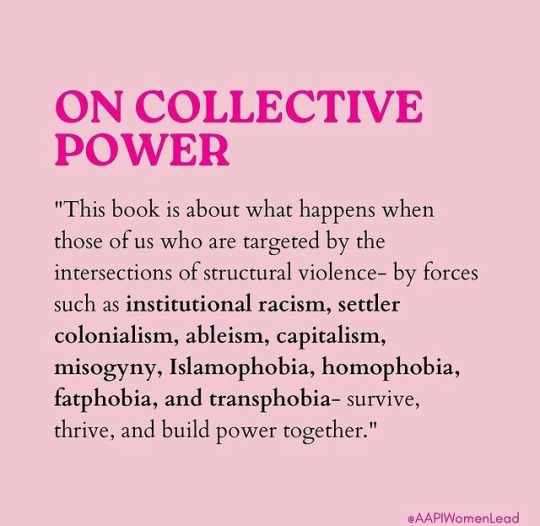
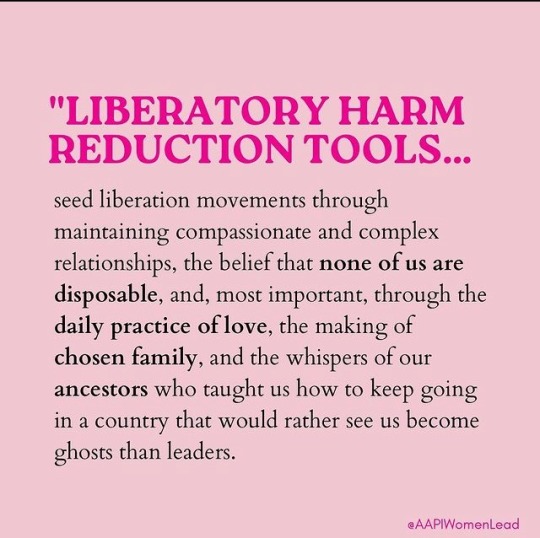
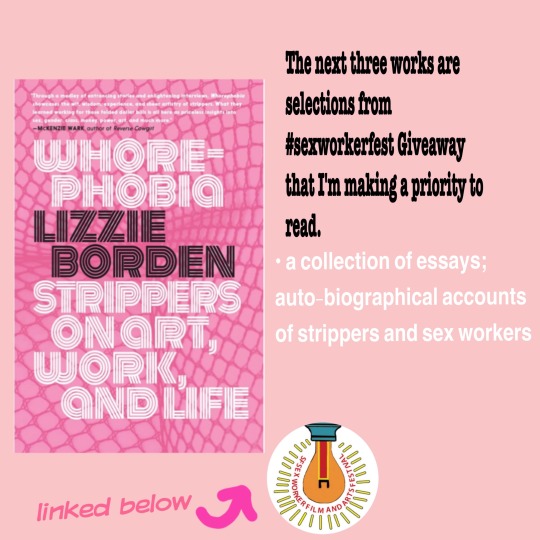
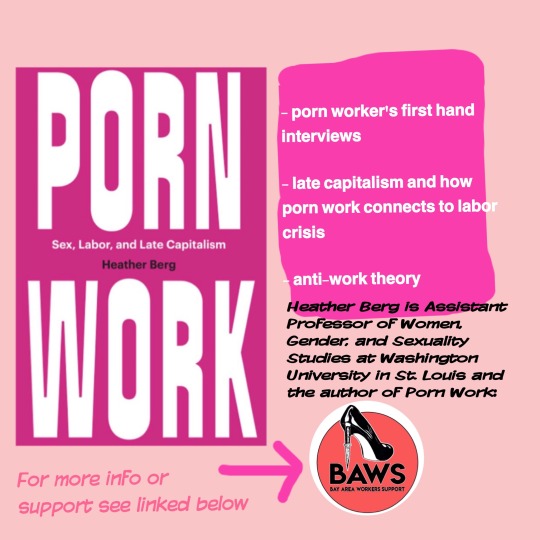

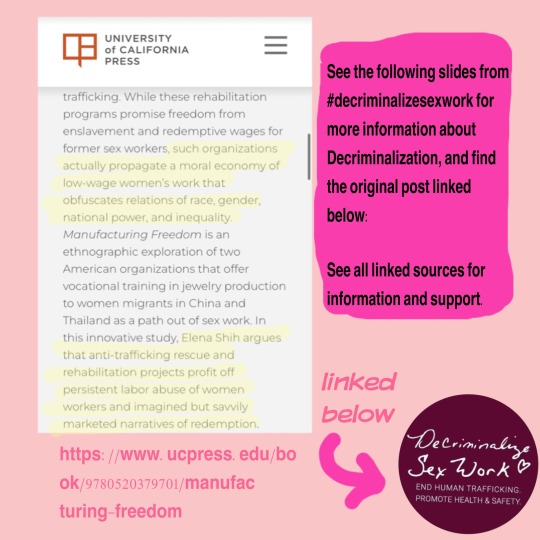
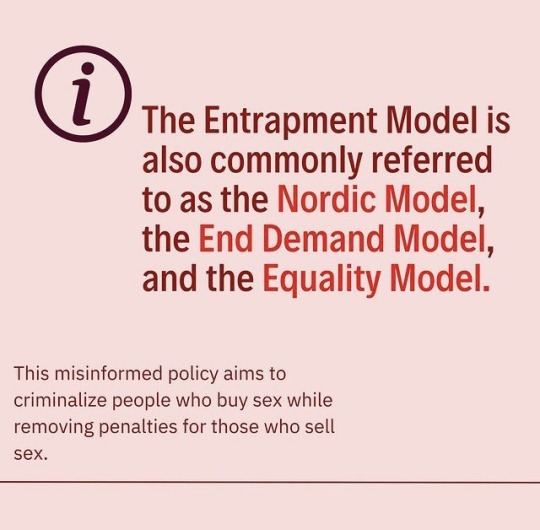
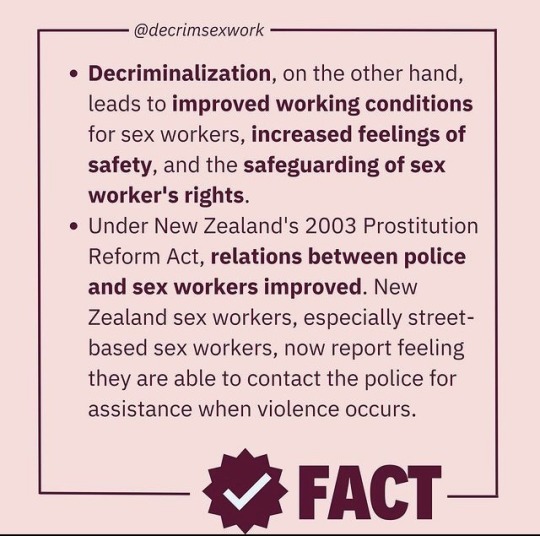
Harm Reduction & Sex Work Reading List
From @/aapiwomenlead Book Club Recommendation:
Saving Our Own Lives: A Liberatory Practice of Harm Reduction by Shira Hassan
From @/sexworkerfgest Book Giveaway Prizes as recommendations:
Whorephobia: Strippers on Art, Work, and Life by Lizzie Borden
Porn Work: Sex, Labor, and Late Capitalism by Heather Berg
Manufacturing Freedom: Sex Work, Anti-Trafficking Rehab, and the Racial Wages of Rescue by Elena Shih
For more information and support:
@/decrimsexwork
@/swopla
@/bayareaworkerssupport
#book blog#bookstagram#bookblog#reading list#book recommendations#book haul#feminist books#feminist reading#pink books#decriminalize sex work#antitrafficking
13 notes
·
View notes
Text
A Plague Tale: subverting tradition

One impressive thing the Plague Tale series has done is to subvert the mainstream media tradition of centring a heteronormative relationship, by showing us a deeply emotional sibling bond.
It presents us other types of love not of a heteromantic/sexual nature – the love between a brother and a sister (Amicia and Hugo), the love between a guardian and a ward although they don't share any blood relation (Aelia and Basilius). It is also a rare instance where the female character is shown being more (mentally and physically) capable.
There's even an opportunity for queer reading, in which the older character can be seen as an older sibling/parent figure fiercely protecting the younger character from the oppressive institutional force that views him as different and dangerous.
#a plague tale amicia#a plague tale hugo#a plague tale innocence#a plague tale requiem#video game#feminist reading#queer reading
2 notes
·
View notes
Text
Just got to the part of ACOK where everyone wants to marry Lady Hornwood, and this gets me every dang time.
Donella Manderly Hornwood has no agency. She's almost always called "Lady Hornwood," because of her husband's lands, not her family or history. She's identified by her property, practically synonymous with it. (Doesn't help that the land is called Hornwood, too.)
She loses her husband and son at the same time. While she's not destitute--Hornwood still has incomes to support her--she is just a symbol of the Hornwood lands and title.
Mors Umber, Wyman Manderly, Wylis Manderly, Leobald Tallhart and his son Beren, Larence Snow and the Glovers: everyone is after her for the land and title that belonged to her husband, not even hers in the first place.
I wonder if Donella ever wanted to marry Halys. He had a bastard younger than his true born son, suggesting he was less than satisfied with the marriage. What about her? What did she want?
And the one person she's interested in, Rodrik Cassel, is too lowly and doesn't have an heir besides Beth. If Rodrik were to marry her, they'd basically be setting up Beth Cassel to have the same problems in a few years.
This system that is so built on heirs, on trueborn sons and indisputable lineage, has to treat women as objects. Subjugation of women is just baked into the whole damn thing. If women have freedom, they might, idk. Have a bastard, or choose not to have children, or literally anything besides being a good lady and broodmare.
Donella Manderly is no more; she's just Lady Hornwood, the vessel by which the Hornwood title and lands are passed. And that is a tragedy that happens well before Ramsay comes into the picture.
9 notes
·
View notes
Text
I wrap myself in a quilt of invisible words.
Vox by Christina Dalcher
4 notes
·
View notes
Text
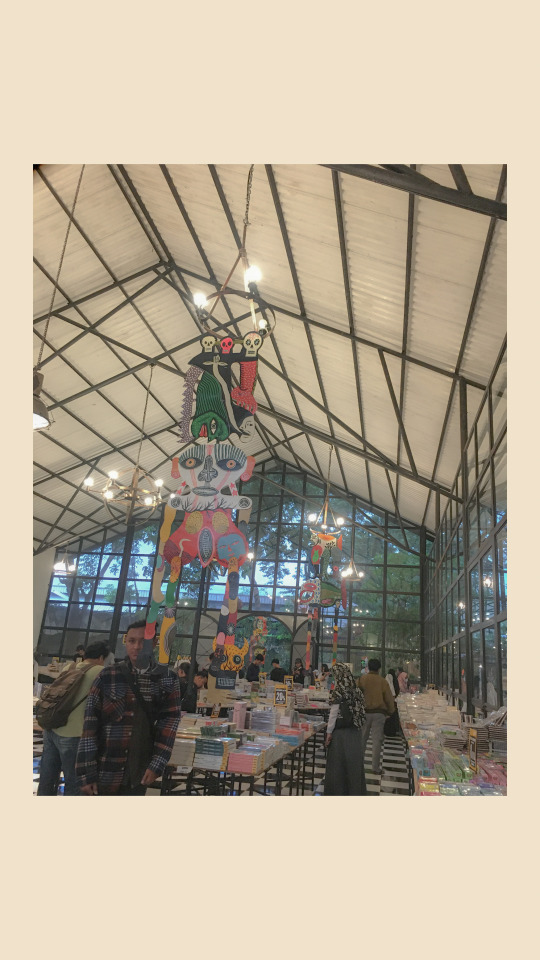

There's this book fair in my town that run from Apr 29th until May 4th (if I'm not mistaken) and of course I cannot help but to just fly there right away! I promise myself not to spend too much (because I want to save for an iPad this year) but I ended up buying two books ;w;
These were heavily influenced by my Twitter timeline, ngl. The left book is titled "Yang Terlupakan dan Dilupakan" it's a short-story antology by Indonesian women authors whose works were erased by the local government for various reason. The right one is "Lebih Putih Dariku" is actually a novel translated from Dutch, originally titled Lichter dan ik.
I'll need to finish my previous read's review first before I can start any of these, lol.
9 notes
·
View notes
Text
My Own Style Analysis: Ben’s Dream
This was originally posted on Reddit.
*Warning: The following picture may be NSFW, you have been warned*

“I am Fire and Air” Cleopatra, as imagined by Willy Shakespeare
Ever since I saw this scene, I have been thinking about any possible references that were made here. This is by no mean's an organized think piece and I feel pretty okay about this, I was shocked to see the overt sexuality in this scene (and hoped no one was coerced into performing) but I always felt that Maitreyi had the talent and looks to play a 21st Century twist on the classic Film Noir Femme Fatale and felt vindicated here. In fact my mind went to different places which shall be covered here.

Lighting: First thing we notice is the purple lighting used in the scene, both to set the tone for Ben's lust and love for Devi and to enhance both Maitreyi's and Jaren's physical appeal. In fact, aside from being a color that stands for status and heroism, purple is one of Dr. David Rosenau's color-coded pyramid of intimacy (which also incorporates colors which were so darn persistent in the show and used in the final scene of the series); purple symbolizes touch and passion, the former that Ben was yearning from Devi at that moment and the passion that they mutually held for each other in a way that matches the damned wildfires in our Golden State and in their academic competition. It is also noted that the both of them hated it when Ben wasn't talking to Devi, in a scene where they were both in outfits picking up on each other's greens (bonding intimacy) after he rescued her from getting groped by a Fabio reject and when she showed up high at her house and ruined an apple shaped cake. The dark purplish lighting also helps to accentuate Maitreyi's dark skin and the metallics on her lingerie and makeup which add to another part of her fantasy mystique.

Madame X: In the late 19th Century, John Singer Sargent painted a very scandalous portrait of a red-haired socialite named Virginie Gautreau, an American ex-pat and wife of a respectable French banker. This was a woman with a sense of confidence who knew she was beautiful and owned her sexuality, both no-no's in the 20th Century Western World (actually given how society loves to humble a woman with high self-esteem or bravado, have things changed?) and in a time when women were expected to cover themselves up with layers of fabric and decor, she was wearing a simple curve-hugging dress in black that contrast with her very fair skin with metallic straps and instead of looking demure, she looked proud, this scandalized Parisian society and practically ruined Sargent's career and Gautreau's reputation, it wasn't until later that this flop became iconic, inspiring Rita Hayworth's dress in Gilda, the gold-chain Chanel dress, the allure that later LBDs now possess, and dresses worn by Christina Hendricks in Mad Men Season 4 episode "Waldorf Stories" and Post heiress/Mr. Sheffield's cold ass mom Dina Merrill and even Maitreyi herself in real life.

Makeup: Complementing the metallics of the lingerie are Devi's makeup, which is inspired by the very contemporary Euphoria and I argue, the intro to the 1980s James Bond film A View to a Kill with the models in bathed in a dark light to better accentuate the neon colored makeup, nail polish, hair, and weapons that would glow in the dark. Another thing to note is that while Devi's lip gloss enhances the natural pink in them, her eye makeup and manicure are bolder and match her nose ring; this is likely a call back to how the 2020 COVID-19 Pandemic impacted makeup trends in sales, with lipstick taking a dip along with economics (a reversal of a trend that was first noted in the Great Depression) while eye makeup sales soared as people found ways to experiment with different colors and designs while keeping safe with masks. Her look is likely even a shout out to Alexa Demie's Euphoria character Maddy Perez, who like Devi and Maitreyi, is a young WOC and Hollywood newcomer flawlessly portraying a complex, flawed, and charismatic young woman who isn't afraid to go ham. The big thing is that Ben is (thankfully) not Nate Jacobs: both being privileged white boys who've internalized the Patriarchy, but while Ben is obnoxious and hiding his vulnerability and abandonment issues with bravado and only achieved some semblance of popularity through is background and connection to others in the Hot Pocket, Nate however has his toxic traits enabled or even encouraged by his parents and is positively horrifying in his treatment of Jules and Maddy and is the BMOC. But rest assured no one is getting almost strangled after tossing a pot of chili after being slut-shamed.

Flame: Sex has always been symbolized by elements (old films used beaches and other forms of water to imply acts of sex and passion) and fire was used as a metaphor for sexual desire in songs like "Hot Blooded" and "Somethings Burning"; flame is also used to illustrate a fiery temperament, Ben is well aware Devi is a hothead like her father's hero John McEnroe (the fact that the elder white Boomer male and a teenage South Asian girl are validated for their short fuse is amazing) and contrasts with his doting yet cool parents and she also often dresses in warm colors that highlight her looks and her personality. In fact many iconic female characters have been depicted with fiery tempers or strong personalities (think Joan Holloway, any character played by Joan Crawford and Bette Davis and Maureen O'Hara, Trudy Proud, Betty and Veronica). This not only played to male audiences but also to female ones in more misogynistic times....
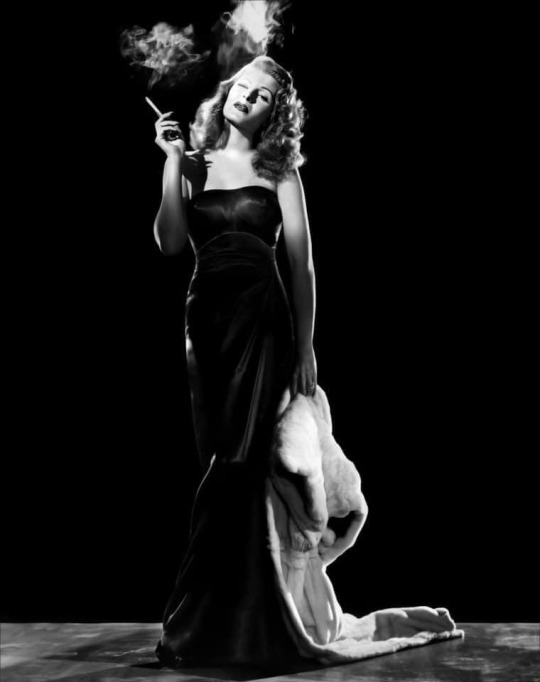
Femme Fatales: As an interviewee in Jackie Stacey's Star Gazing noted "I liked seeing strong, capable, and independent types of female characters, mostly because I wish to be like them" and she, along with many female spectators of films in the 40s and 50s, are in awe of femme fatale's and the career women of the era's films own confidence, intelligence, beauty, and wardrobe. In fact the Femme Fatale comes from a long tradition of men using women as scapegoats for shit hitting the fan and society fearing what would happen if women started to own their intelligence and sexuality (yeah why wouldn't a group that's been long subjugated, abused, and exploited burn down the village?); Devi is no stranger to the feminine being pathologized (blamed for Paxton's accident in Season 2, her grief and temporary disability was mocked, been gaslit by Des...yeah no wonder I channel Lucille Bluth when Devi "damages" something), but wait Toongrrl1990 what about her Unfuckable Nerds moniker? One of the forms of gaslighting patriarchal society has done to women is to liken their worth to their appearance and even when they are pretty, is to gaslight them into thinking they aren't enough: think of how much money the diet industry has made post World War One to now, think of male authors finding ways to insist a woman is "pretty but not beautiful" or say "a model she was far from" or even look at what P.J. O'Rourke says about Bimbos. I grew up in the era where Bridget Jones was considered fat at a size 6 and where people said Bill Clinton (who looked like a basic Boomer Dad to me as a kiddo) could have had "hotter" women (even the one that was a pageant winner wasn't enough or even the freakishly gorgeous and Dorian Gray-esque Monica Lewinsky wasn't enough), in fact go read about Golden Era Hollywood stars and you can see many of the iconic beauties were labeled some form of "unfuckable" (Sophia Loren, Bette Davis, Maureen O'Hara, Grace Kelly, Judy Garland, Meryl Streep). Bosley Croeger, a critic, even critiques Rita Hayworth in Gilda as five and a dime in playing her worldly and street-wise characters.
Devi even lives up to the iconic image of the Femme Fatale's aesthetic: having long wavy hair that bounces and matches her lively nature, her shapely legs that get plenty of focus in Devi's costumes, her quotable "snatched waist, slim thicc queen" figure, quick wit and intellect, and inclination to take risks. As with Madame X, Devi deviates in a major way from the image of the FF, as she is South Asian while the other two female archetypes have been traditionally depicted by white and white-passing women. Devi's image in the scene is a double-edged sword: is it empowering to South Asian girls and WOC and AFABs or is it exploitative as Maitreyi is a young adult and WOC have been historically sexualized? Can girl just express her sexuality because she is feeling herself?
The Femme Fatale is also depicted as being manipulative and intelligent, enough to lead some poor shlubs to their ruin; this is called back to Devi saying "I am so much better at school than you" in the dream and managing to take Ben's shirt off without him noticing her doing so. But as discussed in
u/Professionalish00 brilliant post, Devi is a Hot Mess and this new archetype is somewhat of a victory and evolution from the Femme Fatale, who sighs with relief that complex and sexual women aren't pathologized like she was. Now we can see her own vulnerabilities and see she's just a woman, trying to survive.

Elizabeth Taylor: To quote Tom and Lorenzo, the late cinematic icon and AIDs activist Liz Taylor was a strong woman who had a rich yet messy life, "but she was never the victim that Marilyn [Monroe] was. She took charge of her life and owned her mistakes, but never stopped pursuing the perfect love, demonstrating a sexual aggression that few women of the period would have been comfortable showing". Also as noted by M.E. Lord in The Accidental Feminist, Elizabeth Taylor was a funny gal with a great appetite for living and like Devi, was something of a man eater (Debbie Reynolds noted that Liz stayed friends with many of her exes) and the opposite of a doormat (except in the film Ash Wednesday and Season 2 after Paxton's accident, which was the point). Like Liz's character Martha in Who's Afraid of Virginia Woolf?, Devi possesses an aggression that is still looked down on in women but otherwise tolerated in men (see my notes on McEnroe), encourages Paxton and Kamala to buck the system a la Leslie Benedict in Giant, dealt with having her physical and mental health used as a cudgel against her like Cathy in Suddenly, Last Summer (minus the threat of a big ass ice pick), I would even argue that Liz playing Gloria in Butterfield 8 struck a blow for young women expressing their sexuality (I also love the image in my head of Gloria teaching Devi how to better utilize her hot headedness, especially with lipstick and stilettos) and Devi deep down encourages the best for her loved ones, a passion I saw with Liz Taylor's activism.
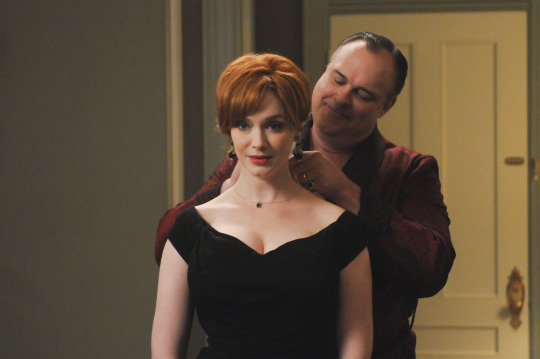
Put the blame on Devi...oops Mame: Alas the night ended with Ben showing up high as a kite at Devi's house, driven by his love and lust for Devi, only to ruin her grandmother's cake and implode Devi and Margot (another complex and charismatic woman) efforts to get their parents together. A misogynist would blame Devi for it, in case you think I am off my rocker, watch Shiny, Happy People on Prime or Fundie Fridays on the Duggars and IBLP, remember what Helen of Troy was blamed for or listen to several episodes of You're Wrong About. I would have liked to see Ben really apologize for the UN and all the other shit, but perhaps getting locked listening to Paris Paloma's "Labour" would help (ooof my cramps right now, dang medical science for not finding a way to diagnose menstrual pain without surgery).
So please read this and give me your thoughts, or I'll cry lol.
#costume design#costume analysis#never have i ever#devi vishwakumar#ben gross#sexuality#female archetypes#femme fatale#madame x#women of color#iconic women#deep dive#benvi#feminist reading#misogyny#male gaze#female sexuality#hot mess#women in media#poc in media
5 notes
·
View notes
Text


─Who Cooked the Last Supper by Rosalind Miles.
#resources#feminist reading#rosalind miles#who cooked the last supper#radical feminism#my quotes#matriarchy
5 notes
·
View notes